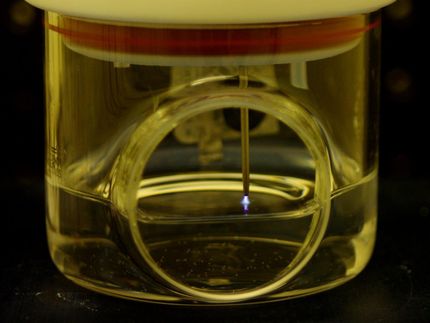Advances in Biotechnology for Chemical Manufacture
Bioprocesses Upstage Traditional Chemical Processes
Exciting advances in biotechnology are driving the increasing acceptance of biotech products in several industries, especially pharmaceuticals, agriculture, and chemicals. Bioprocesses sometimes eliminate conventional steps in chemical synthesis while enabling cost-effective manufacturing.
"The pace of bioprocess adoption in different industries will depend on the economic viability of the process and the influence of regulations," says Technical Insights Analyst Miriam Nagel. "Additionally, the difficulties associated with biotech adoption are likely to vary and concerns of one industry may not be significant for another industry."
For instance, intensity and high cost of R&D is expected to weigh down the development of biopharmaceutical drugs, whereas political uncertainties and public pressure for safe and sustainable development are critical factors in the chemicals industry.
Agriculture will be another key sector confronting two primary challenges -- public apprehension over genetic engineering processes and the subsequent enactment of complex regulations. These factors are likely to slow down the adoption of bioprocesses.
However, if the launch of blockbuster biopharmaceutical drugs for hepatitis, cancer, diabetes, and hemophilia, and the subsequent revenue surge for pharmaceutical companies in 2003, is any indication, more industries are likely to step up the deployment of bioprocesses.
"The elimination of several conventional steps used to synthesize vitamins and antibiotics has significantly reduced production cost and adverse impact on the environment, and this, in turn, is encouraging the acceptance of bioprocesses," says Nagel.
The gradual increase in adoption rate is distinctly evident from the development of biopolymers - particularly biodegradable plastics - derived entirely from renewable resources, and introduction of applications such as biodegradable cutlery and disposable compact discs.
The European Union's approval of biological fungicide for use on food crops and the green signal given by the United States for development of novel gene delivery technology that could be used in agriculture and medicine are also providing additional impetus for biotech adoption. One of the first applications is likely to be engineered soybean varieties that are capable of superior disease resistance and reduction of saturated fat content.
"Innovation is the key for biotechnology advances in healthcare, agriculture, industrial production, and environmental management," says Nagel. "Keeping this in mind, biotech companies are reinvesting more than 50 percent of revenues in R&D."
These sustained efforts are paying off as more than 155 biotechnology drugs and vaccines have recently been approved by the Food and Drug Administration (FDA) in the United States alone. Remarkably, 75 percent of the approvals have come in the last six years.
"The mere fact that almost 99 percent of uncultured microbial species in the environment have not been catalogued is a signpost for the endless opportunities for application of biotechnology in different industries," opines Nagel. "Industrial biotechnology has the potential to be the 'third wave' following pharmaceutical and agricultural biotechnology," concludes Nagel.
Other news from the department business & finance
Most read news
More news from our other portals
See the theme worlds for related content
Topic world Synthesis
Chemical synthesis is at the heart of modern chemistry and enables the targeted production of molecules with specific properties. By combining starting materials in defined reaction conditions, chemists can create a wide range of compounds, from simple molecules to complex active ingredients.

Topic world Synthesis
Chemical synthesis is at the heart of modern chemistry and enables the targeted production of molecules with specific properties. By combining starting materials in defined reaction conditions, chemists can create a wide range of compounds, from simple molecules to complex active ingredients.


























































